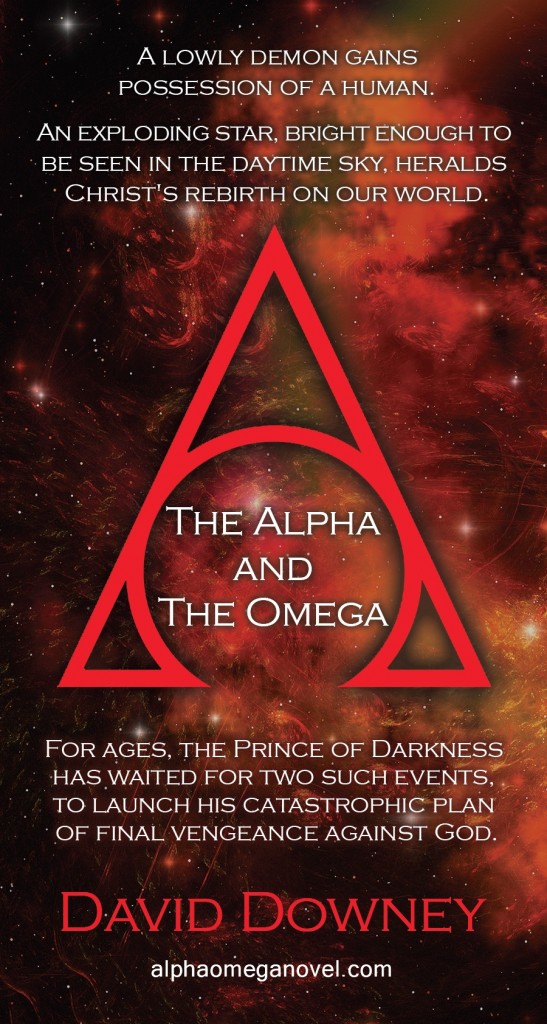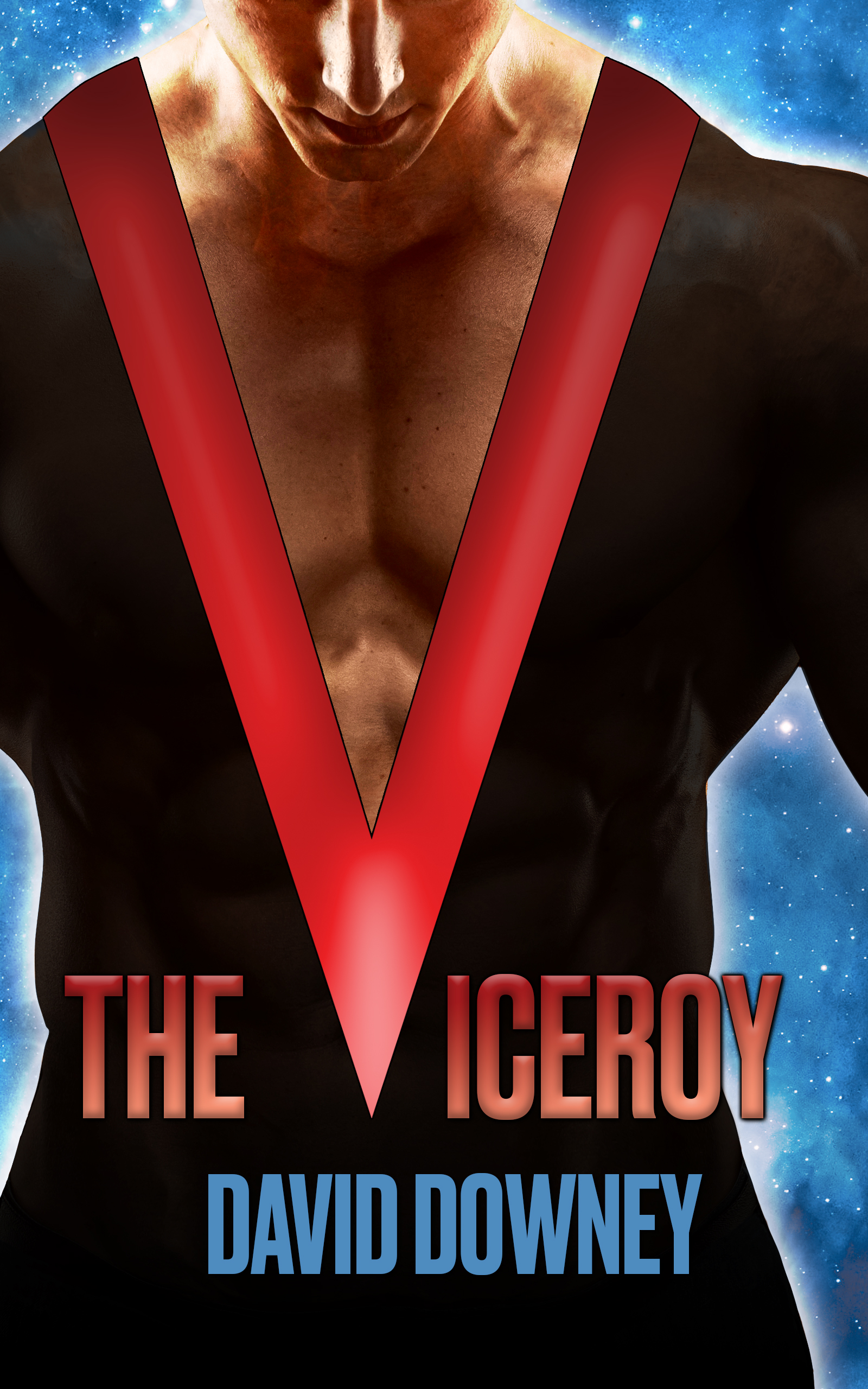As you may have noticed on the sidebar at the right, as well as throughout this website, I just released Goddess. (Boy, that took longer than expected.) Click here to read more about the fantastical sci fi tales in this short story collection.
|
|||
|
Apologies for the tardy post. This past month, I moved to a new home, changed day jobs, battled a wicked cold, and—oh yeah—endured another birthday. But amid this madness, I’ve been working on a literary side-project, which I hope to announce soon. So tune in next month—same bat-time, same bat-blog! Happy New Year! In 2013, The Alpha And The Omega ebook will be free to Amazon Prime members. (It will still be available for $2.51 – $2.99 for non-Prime members.) *** The gory details: As a condition for the A&O ebook to be offered free to Prime members, I can no longer sell it anywhere but on Amazon. That’s why the ebook is listed as “temporarily unavailable” on every format, except Kindle, on my website. (The physical version of the book is unaffected.) It pains me to limit distribution of A&O to only Kindle. However, hard truth be known, I’ve sold far more ebooks on Kindle than on all the other formats combined. So in hopes of reaching a wider audience with the lure of free ebooks, I’ve resorted to this measure. Depending on the outcome of this Grand Experiment, the A&O ebook may again be available for the Nook, iTunes, Google Play… in 2014. I’ve been subjected to this sentiment throughout my life: “Horror, science fiction, mysteries, and the like, are fine for beach reading, but they’re not literature.” Then a few years ago, I stumbled across an essay by Anne Rice (author of Interview With A Vampire, among other works) where she dared argue that genre fiction was not only just as good as literature, it was better.* And I wholeheartedly agree. I literally read hundreds of literary short stories in Harpers and the New Yorker. Yes, most are masterfully written. But most are also slice-of-life stories. Everyday, I live a slice of life. But unlike the literature I’ve read, my daily life’s experiences are far richer in senses and thought than can ever be conveyed in words (though Ulysses comes close). My slices-of-life carry real consequences for me and those around me. And perhaps greatest of all, my slices-of-life are fleeting; they never occurred before, and they’ll never occur again in the entire history of the universe, and thus, are infinitely precious. Literary fiction strives to capture what it is to be human. So what’s the point of reading it? Just live it. But in my life, I know I’ll never be London’s finest detective. I’ll never ride a monstrous sandworm on a far off desert planet. And I’ll never swoon in the embrace of a vampire. Genre fiction allows us to experience fantastic delights and horrors that are impossible in our normal daily lives. That’s what makes it great, and I contend, superior.** *** * For the life of me, I can’t find the essay again. If anyone knows where it is, please point me to it. ** Granted, I’m a genre fiction writer, so I’m a bit biased. To celebrate the most terrifying month of the year, a selected commenter to this blog entry will receive a free copy of The Alpha And The Omega! While I was reading Ender’s Game (as chronicled in my previous post), a friend informed me that the author, Orson Scott Card, was an active opponent of same-sex marriage. Though I’m not gay, I support gay rights. So when I heard this, I was torn: I was in awe of Card’s undeniable talent, but I was repulsed by his bigoted actions. And Orson Scott Card isn’t my only “Talent vs. Character” dilemma. I like some of Woody Allen’s films, but I think he’s a dirtbag for marrying a woman who was virtually his adopted daughter. So what do I do? Do I picket Orson Scott Card’s house? Do I create www.woodyisadirtbag.com? As it turns out, I resorted to nothing so grandiose: I decided not to support their actions with my money. A simple financial boycott of their talent. But who am I really hurting with my boycott? I don’t get to read Speaker for the Dead (the highly-praised sequel to Ender’s Game), while Orson Scott Card loses only a couple of dollars in royalties. I don’t get to experience a Woody Allen movie, while the filmmaker is only deprived of a single ticket sale. Well, I’m not above bending the rules a bit. The same friend who told me about Card’s intolerant deeds also came up with a way for me to skirt my boycott: buy Speaker for the Dead used. That way, I get to enjoy the book while not contributing money to its author. And I confess, I still read Woody Allen’s occasional pieces in the New Yorker, consoling myself that I already paid for the magazine subscription, so why not? By taking this stance, I know I open myself up to the same judgment. I have controversial beliefs I’m sure many people don’t agree with (for example, my pro-gay rights stance, as mentioned above). And I’ve done things in my past I’m not proud of. So if a potential reader is turned off by my views or history, I shouldn’t be surprised if she decides not to buy my book. (I just implore that she shouldn’t deny herself the splendor that is The Alpha and the Omega and purchase the novel used.) What were some of the “Talent vs. Character” quandaries you’ve faced? And how did you ultimately deal with them? When I was originally working on my “first novel” (mentioned in my blog post below), I was in a couple of writing groups. Submitting my book’s first few chapters to the groups to critique, I was surprised to get the same feedback from most of the groups’ members: my novel reminded them of Ender’s Game. At the time, I hadn’t read Ender’s Game, but I knew it by shear reputation; it was the most critically-acclaimed bestselling sci-fi novel of the 1980s. To be compared to such a monumental work was a tremendous compliment, or so I first thought. I soon began to worry that my “magnum opus” had already been written. I resisted the urge to read Ender’s Game, fearing that I’d learn that that my game-changing, mind-f*cking, breathtakingly-original novel was cliche. Well, I finally grew some and recently read Ender’s Game. And I can see why it’s so popular: it’s a game-changing, mind-f*cking, breathtakingly-original novel. And I can see why my fellow writers compared my “first novel” to Ender’s: Both are sci-fi. Both have young protagonists. And both involve an alien invasion. But that’s where the similarities end: Ender is a child; my “first novel’s” hero is in high school. Ender’s Game occurs in the far future; my “first novel” happens in the present. Ender’s takes place on various worlds and space stations; for the most part, my novel unfolds on Earth. So thankfully, not everything has been done before. In 2003, I began writing my first novel. Out of all my story ideas, it was the one I felt most passionate about. No, it wasn’t The Alpha And The Omega. Unlike A&O, this “first novel” was sci-fi. But like A&O, it also had elements of horror and religion. In other words, it was so “out there”, I decided no agent or publisher would ever consider it from a first-time author. So 200 pages into the first draft, I abandoned it. Rifling through all my other story ideas, I chose the one I judged to be the most “commercially accessible” and began writing it. And that’s how A&O became my debut novel. Did I sell out? I rationalized that I didn’t, that I would’ve eventually written A&O as my second novel. (But aren’t rationalizations just lies, giftwrapped with pretty bows?) Have you ever “sold out” (artistically or otherwise)? Have you ever chose “product over passion”? If so, was it ultimately worth it? (In regards to A&O, I guess time and book sales will tell…) PS – I’m currently back to writing my “first novel” An ad for The Alpha And The Omega is slated to appear in issues #313 – #316 (May – September 2012) of Fangoria magazine: (Super thanks to Su Kopil at Earthly Charms for designing this!) I originally came up with The Alpha And The Omega in the 1990s. Back then, the time was ripe for an apocalyptic thriller. It had been 2,000 years since Jesus walked the Earth, and many felt something big was about to happen to mark the event, be it a global computer crash, the Reckoning, or a party to end all parties. But I was young, and I didn’t have the discipline to sit down and write A&O. 2000 AD came and went. And nothing happened, both globally and with my writing. For years, I lamented that I missed a historic window of opportunity. A&O was perfect for an End Times-rattled audience. I was sure it would be another 1,000 years before the world would again be gripped in such a cataclysmic frenzy. Yet, I decided to press on with A&O. And as I wrote and edited away, protests began brewing. Revolutions toppled dictators. The world fell into economic ruin. And according to the scientific experts, it was only a matter of time before zombies would be feasting on all our brains. And the capper: A&O was released on May 21, 2011, coincidently the day Harold Camping predicted the end of the world. Yes! Another window of opportunity has opened. |
|||
|
Copyright © 2025 David Downey Designed & Built By Atmosphere Websites | Author Website Design |
|||



